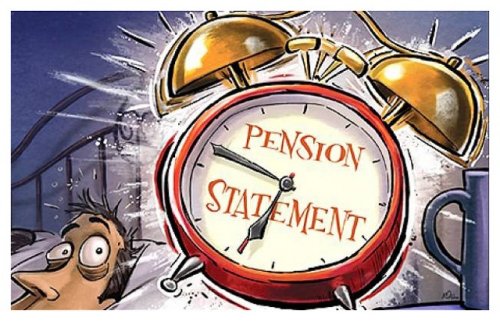Can You Afford To Retire? (And Why You Should Read This)
Retirement has changed radically over the last few decades in developed countries.
Years ago, when you expected to work most of your life for a single, large employer, you could count on a pension. Retirement planning meant figuring out how to use your free time when you stopped working, not calculating rates of return and deciphering tax rules. You didn’t have to worry – enough money would be there from your Company pension and your own Countries relevant Social Security to see you through your twilight years.
Now though, its a different story. In the new modern world of transient employment and Countries of residence most workers are not enrolled in pension plans, and the numbers continue to drop as Company schemes continue to close or not be offered. Because fewer and fewer people enjoy the security of Company sponsored pension plans, retirement means that in all likelihood you will be living on money you, yourself, saved. In addition to having enough to fund your retirement, you must make sure that, once retired, your investments continue to produce at the same time you are tapping into them to meet expenses.
This change from institution-funded to self-funded retirement constitutes a dramatic shift of responsibility. The magnitude of what is required to go from being cared for financially in retirement by your employer to providing for yourself has not fully hit home for most people.
“THE BEST TIME TO PLANT A TREE WAS 20 YEARS AGO, THE NEXT BEST TIME IS NOW”
What, then, are the implications?
Most importantly, it means retirement planning must span the entirety of your adult life – it is not just something you figure out while cleaning out your desk the day you turn in your keys and say goodbye to co-workers. Additionally, good planning takes time and effort. and you bear the responsibility for steering your own course, whether it be done on your own, with help, or by delegating to professionals.
In general, the more you maximise your income and saving and control spending while working, the better off you will be in retirement. Obviously, the fewer resources you have and the more challenges you face (i.e., caring for a disabled child or a frail, elderly parent) the more important it is for you to be fully engaged in understanding your options, get the expertise you need, and make good decisions.
How Much Money Will You Need for Retirement?
The main goal before you retire is to make sure that you have enough money when you do retire so you can maintain your standard of living. How much is enough depends on when you wish to retire, what your anticipated living expenses will be, what rate of return you can expect on your savings, and whether you will continue to work at all after retirement.
The anticipated date of your retirement affects two important factors: how much time you will have to save up for retirement and the number of years you can expect to live after you retire. A qualified financial advisor can help you sketch out your retirement plans in terms of timing and lifestyle. Once put these down on paper, the financial planner can help you calculate how much money you need to have set aside to meet your goals and how it should be invested. Unfortunately, the answer will likely be that “You’ll need more money than you think.” Worldwide people are living longer than ever before and inflation inevitably eats away at the value of money saved.
Once you have an idea of how much you will need, here are other factors involved in determining how well you will manage your retirement savings:
1. The total amount you contribute over time
2. How you save (all at once or little by little)
3. What kind of investment you use (savings accounts, bonds, stocks, dedicated retirement plans)
4. How much your savings or investments grow, less expenses
5. Whether or not you reinvest that growth
6. How long you have before you begin spending your retirement savings
7. How you plan to take money out (again, all at once or little by little)
8. How and when your money will be taxed and by how much
- The inflation rate over the life of your retirement planning.
Even taking into account the above there is no way around it.
“If you want to retire early, you need to start saving early”
The magic of compound interest will work in your favour and your retirement fund will accumulate faster. The stock market is a great wealth generating machine if you have a long investment horizon. When you’re in your 20s and 30s, a stock market crash can even be a good thing. You can keep buying and investing, and you will most likely do very well in the long run. The later you start saving, the harder it will be to retire and continue a lifestyle you have been used to.
“Life is full of uncertainties. Future investment earnings, interest and inflation rates are not known to anybody. However, I can guarantee you one thing…, those who put an investment program in place will have a lot more money when they come to retire than those who never get around to it.” Noel Whittaker – Life Planning
Below are 2 links to useful retirement calculators
www.standardlife.co.uk/1/site/uk/pensions/getting-started/income
www.solidus-international.com/financial-calculators/retirement-calculator/
 This article has been provided by Paul Glen at Solidus International, providing dynamic solutions to its clients’ individual requirements in the very volatile world of investments, financial planning and wealth management
This article has been provided by Paul Glen at Solidus International, providing dynamic solutions to its clients’ individual requirements in the very volatile world of investments, financial planning and wealth management

